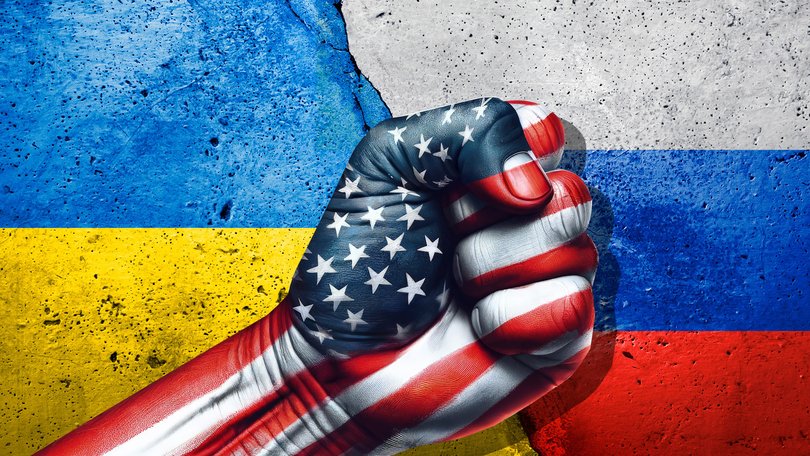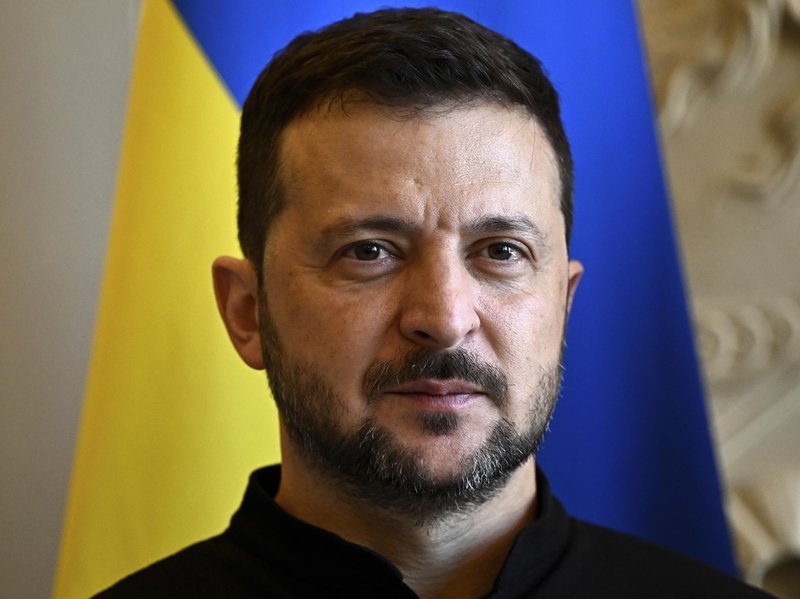SIMON BIRMINGHAM: Ukraine must win or the world will suffer

Eighty-five years ago this week, Hitler’s Germany invaded Poland. England and France declared war. What was to follow was both calamitous and fortunate; tragic yet heroic.
Freedom-loving people owe everything to this generation of leaders and lifters, who carried the day in World War II.
Their victory was followed by a determination to prevent such conflict from happening again.
Sign up to The Nightly's newsletters.
Get the first look at the digital newspaper, curated daily stories and breaking headlines delivered to your inbox.
By continuing you agree to our Terms and Privacy Policy.This gave birth to the United Nations, with countries agreeing “to unite our strength to maintain international peace and security”.
On one score, it had limited success. For decades the Cold War ensued, nuclear weapons proliferated, and real wars like those in Vietnam, Korea or Afghanistan sacrificed many more lives.
Yet a world war was avoided, prosperity proliferated across open economies and, alongside the fall of communism, a burst of demilitarisation occurred.
New co-operative ways of keeping the peace were pursued, with blue beret-wearing peacekeepers giving real meaning to the ambitions of UN founders.
On September 11, 2001, terrorism burst the bubble of peaceful optimism that generations like mine had embraced. The end of history was in fact the start of something insidious.
Initially nations responded in ways that its founders perhaps envisaged, but the nature of another long war in Afghanistan and a more contested conflict in Iraq tested that resolve.
While support for these conflicts waned, and terrorism expanded its network, new threats have grown aplenty.
A variety of non-nuclear weapons states have pursued nuclear capabilities, with ill-intentioned regimes in North Korea and Iran showing scant respect for efforts to contain their ambitions.
Today we face a rising disregard for the peaceful ambitions and rules that followed the aftermath of World War II.
Russia has brought bloody state-on-state, land-based territorial war back to European shores with its invasion of Ukraine.
Iran sponsors terrorists waging war or attacks from bases including Gaza, Lebanon and Yemen, prompting massive human suffering in a war with Israel, and major threats to global trade through the Red Sea.
North Korea and Iran enthusiastically sell arms to support Russia, while Chinese components and funds also help to sustain Russia’s war effort.
Under Xi Jinping, China has crushed freedoms in Hong Kong, aggressively presses territorial claims in the South China Sea, and seeks to militarily intimidate Taiwan.
In signals that can hardly be read as well-intentioned, these four countries have pursued joint military exercises. Russia and China have declared a “no limits” friendship.
These actions link risks in the Euro-Atlantic with risks in the Indo-Pacific.
Elsewhere, civil wars continue to take a heavy toll on human life. Effective peace-making or peacekeeping initiatives no longer enjoy international momentum.
The sum of all this is a multilateral system that is as broken now as at any point in its history.
The UN’s paramount objective of preventing war is transparently failing.

To avoid a repeat of 85 years ago, deterrence must be more effective today than appeasement was then.
Peace-loving countries must deliver deterrence via example, via defence capabilities, and via effective diplomacy.
To deter future aggressive actions we must firstly demonstrate the will to prevail in today’s conflicts. Ukraine must win.
Ukraine needs to be given the ability to effectively defend itself.
The mere existence of current conditions on Ukraine’s use of military support sends a worrying signal to tyrants.
To help deter future acts of aggression supporters of Ukraine must be strong, and be seen to be strong.
Secondly, in addition to deterrence via current example, we must also create deterrence via effective defence capabilities.
Back in 2013 the new Liberal-led government in Australia began restoring defence investment to 2 per cent of GDP, after Labor had allowed it to fall to the lowest level since before World War II.
Our investment made subsequent capability decisions possible, including being sufficiently credible to convince the United States to share nuclear-powered submarine technology with another nation for only the second time in history.
The birth of AUKUS in 2022 is a recognition that we all need to create more effective deterrence by boosting both our defence capability and our defence industrial capability.
It demands us to think big about co-operation, including making the transfer of technology, knowledge and related human skills between our nations as easy as possible.
Greater NATO engagement also gives hope to embed the best of strategic co-operation, interoperability and knowledge sharing with other partners.
By creating deterrence via current example and via defence capability, we then give room for diplomacy to do its job.
In addition to the co-operation that exists with AUKUS or NATO, we must build other networks of diplomatic deterrence. These must aim for all who share an interest in respect for sovereignty and stability.
Our co-operation with India in the Quad is an example. So too our close partnerships with ASEAN and the Pacific Islands Forum.
We cannot allow other countries to prevail by driving divisions based on the pursuit of power, the exploitation of perceived injustices, or use of financial means to coerce others.
The agency and sovereignty of each nation, big and small, deserves respect, so long as they respect each other.
Our efforts must aim to breathe life back into the primary founding objective of the UN to avert global war.
As King George VI said 85 years ago, we must avoid “the primitive doctrine of might” and pursue “all hopes of peace and of the security of justice and liberty of nations.”
Simon Birmingham is the shadow foreign affairs minister
